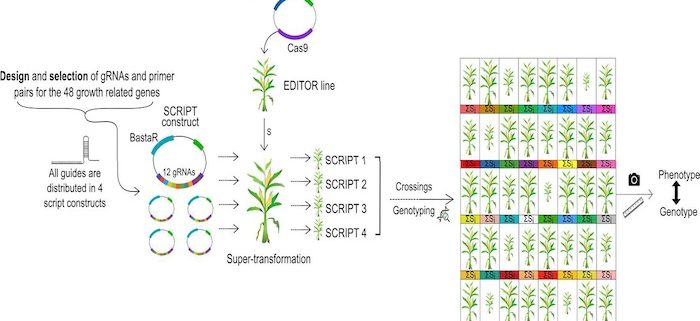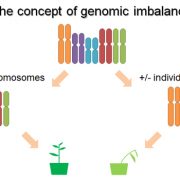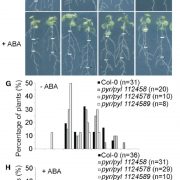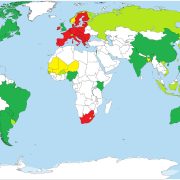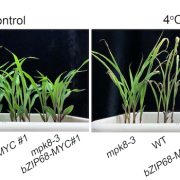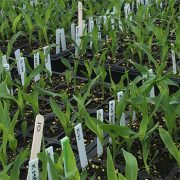BREEDIT, a first step towards breeding by gene editing
Christian Damian Lorenzo(1,2), Kevin Debray(1,2) and Dirk Inzé(1,2)
1 Department of Plant Biotechnology and Bioinformatics, Ghent University, 9052 Gent, Belgium
2 Center for Plant Systems Biology, VIB, 9052 Gent, Belgium
Background: Plant breeding is the process of generating superior crop varieties by crossing different plants with positive agronomic traits, such as improved yield or drought tolerance, which are regulated by complex gene regulatory networks. So far, conventional breeding has mostly focused on traits improved by natural mutations on particular key genes. Nonetheless, gene redundancy (genes sharing the same function) has limited further improvement because several genes need to be mutated and combined to produce stronger effects. As the threat of climate change is forcing us to develop more productive crops with fewer resources, novel gene combinations need to be discovered to overcome this problem in the future.
Question: Is it possible to achieve improvements in complex traits using genome editing to target whole gene families in crop species? Can these different combinations of gene family edits be further combined to generate even better characteristics?
Findings: Using maize as a model species, we developed a pipeline called BREEDIT to rapidly generate a diverse collection of multiplex gene-edited plants. By using CAS9-expressing maize lines (EDITOR), we simultaneously targeted up to 12 candidate growth-related genes with one SCRIPT construct. This was followed by selfing and/or crossings of plants transformed with same or different SCRIPTs to obtain lines with improved agronomical traits such as increased leaf size and drought tolerance when tested in growth chamber conditions. Furthermore, edits at specific genes were associated with improved characteristics, showing that the number of genes that need to be mutated in order to generate improved plant traits can be reduced. BREEDIT allows to quickly identify these promising gene modifications for later use in breeding programs.
Next steps: Having proved the power of this pipeline to positively reshape plant growth, we now aim to perform field trials with the most promising lines to check for improved performance under field conditions.
Reference:
Christian Damian Lorenzo, Kevin Debray, Denia Herwegh, Ward Develtere, Lennert Impens, Dries Schaumont, Wout Vandeputte, Stijn Aesaert, Griet Coussens, Yara de Boe, Kirin Demuynck, Tom Van Hautegem, Laurens Pauwels, Thomas B. Jacobs, Tom Ruttink, Hilde Nelissen, and Dirk Inzé (2022). BREEDIT: A multiplex genome editing strategy to improve complex quantitative traits in maize. Plant Cell https://doi.org/10.1093/plcell/koac243


